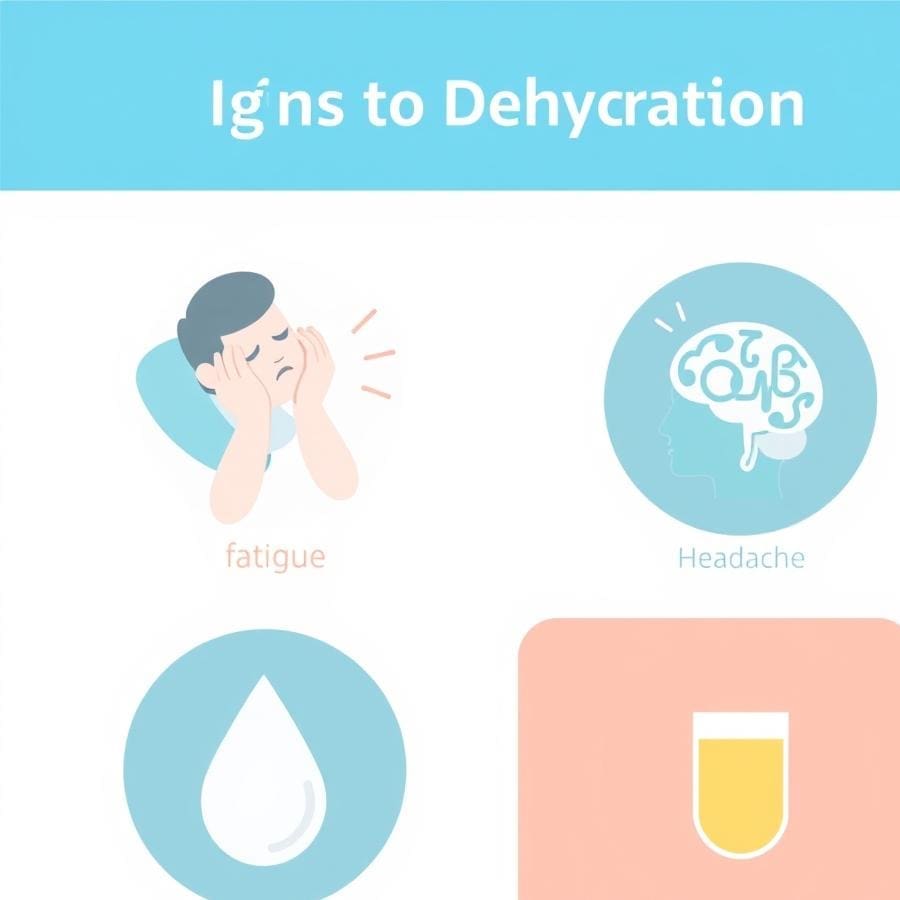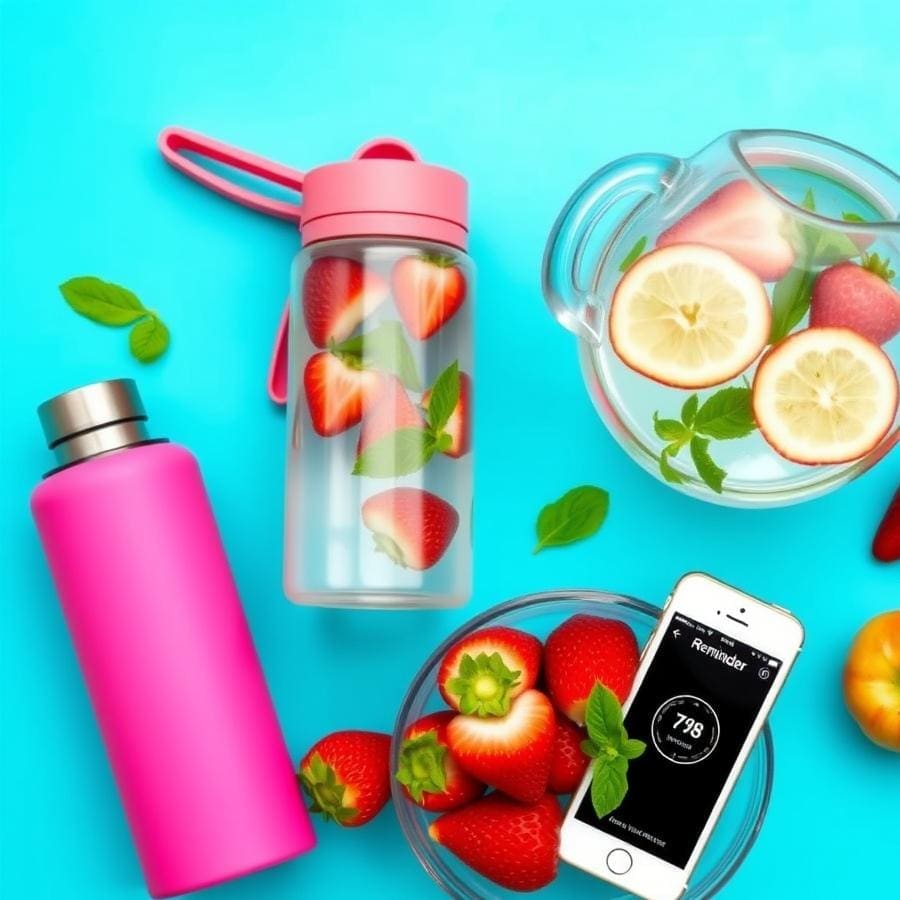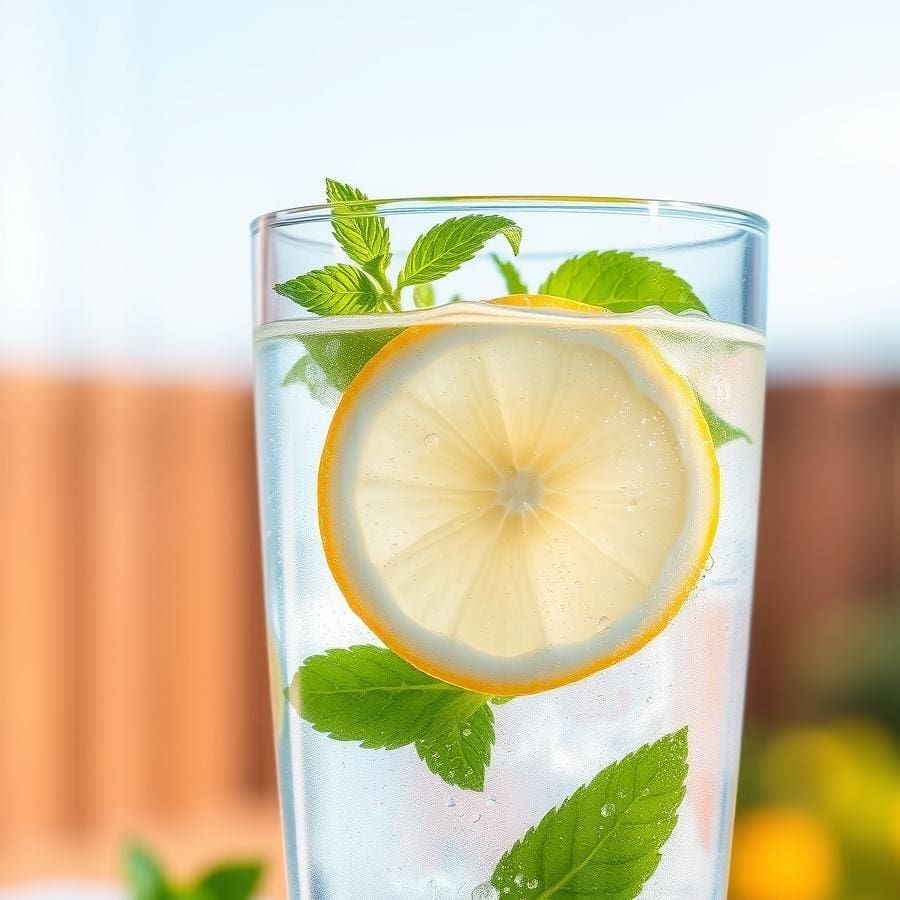The Ultimate Guide to Hydration: Why Water is Your Body’s Most Essential Nutrient

Water is the very essence of life, comprising about 60% of our body weight and playing a role in nearly every bodily function. Yet, in our busy lives, it’s often the most overlooked aspect of health.
Many people operate in a state of chronic, low-grade dehydration without even realizing the impact it has on their energy, mood, and overall well-being. This guide will dive deep into the crucial importance of hydration, debunk common myths, and provide you with an actionable toolkit to stay optimally hydrated.
The Sneaky Signs of Dehydration You Shouldn’t Ignore

Thirst is the most obvious sign you need water, but it’s actually a lagging indicator—by the time you feel thirsty, you’re already on your way to being dehydrated. Other, more subtle signs include persistent fatigue, trouble concentrating, unexplained headaches, dark-colored urine, and dry skin.
Ignoring these signals can lead to impaired physical performance, cognitive decline, and in the long term, may contribute to more serious issues like kidney stones and urinary tract infections, a conclusion supported by a key review in Nutrition Reviews. Recognizing these early warnings is the first step to improving your hydration habits.
The Remarkable Health Benefits of Staying Hydrated

The rewards of drinking enough water are vast and impact your entire body. Proper hydration is critical for maximizing physical performance by lubricating joints and regulating body temperature.
It significantly boosts brain function, improving focus, memory, and mood. Water also plays a key role in digestion and nutrient absorption, preventing constipation.
Furthermore, it’s one of the best beauty secrets, as it helps flush out toxins and keeps skin cells plump and resilient, leading to a healthier, more radiant complexion. For those managing their weight, drinking water can increase feelings of fullness, helping to control appetite.
How Much Water Do You Actually Need?

The old ‘eight glasses a day’ rule is a good starting point, but as health experts from the Mayo Clinic state, it’s not a one-size-fits-all solution. Your individual water needs depend on several factors, including your age, sex, activity level, climate, and overall health.
A more personalized guideline, aligning with recommendations from The National Academies of Sciences, is to drink half your body weight in ounces. For example, a 150-pound person should aim for about 75 ounces of water per day.
You may need more if you exercise intensely, live in a hot climate, or are pregnant or breastfeeding. Remember that water from foods like fruits and vegetables also contributes to your daily intake.
10 Practical Tips to Effortlessly Drink More Water

- Carry a reusable water bottle everywhere.
- Set timed reminders on your phone or smartwatch.
- Infuse your water with fruit, herbs, or vegetables for a flavor boost.
- Drink a full glass of water upon waking up.
- ‘Eat’ your water by consuming water-rich foods like cucumber, watermelon, and oranges.
- Start every meal with a glass of water.
- Use a smart water bottle or app to track your intake.
- Replace at least one sugary drink per day with water.
- Make it a habit: link drinking water to another daily activity, like checking emails.
- Invest in a water filter to improve the taste of your tap water.
Conclusion
Hydration is not a complex chore; it’s a simple, powerful act of self-care with profound effects on your health. By understanding your body’s needs and implementing a few easy habits, you can transform your energy levels, sharpen your mind, and support your long-term wellness.
Make a commitment today to prioritize hydration. Your body and mind will thank you for it.

Your article helped me a lot, is there any more related content? Thanks!